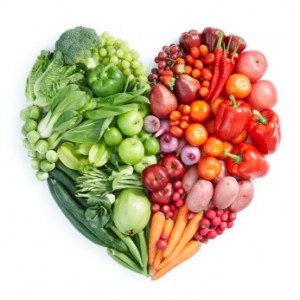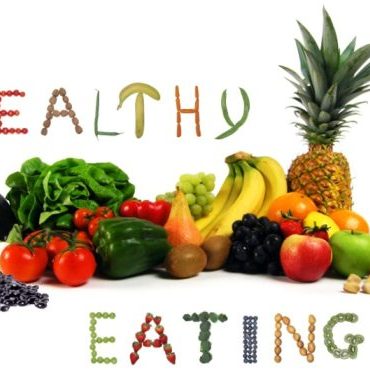1,079
 LOTL’s resident nutritionist answers more of your health-related questions.
LOTL’s resident nutritionist answers more of your health-related questions.
Can exercise help me manage high cholesterol?
Researchers aren’t entirely sure how exercise lowers cholesterol, but they are beginning to have a clearer idea. One way exercise can help lower cholesterol is by helping you lose — or maintain — weight. Being overweight tends to increase the amount of low-density lipoprotein (LDL) in your blood, the kind of lipoprotein that’s been linked to heart disease.
Part of the confusion about the effect of exercise on cholesterol stems from the fact that most early cholesterol studies focused on both exercise and dietary changes, making it hard to tease out which of these factors was actually making the difference. But recent studies have more carefully examined the effect of exercise alone, making it easier to evaluate the relationship between exercise and cholesterol.
Researchers now believe there are several mechanisms involved. First, exercise stimulates enzymes that help move LDL from the blood (and blood-vessel walls) to the liver. From there, the cholesterol is converted into bile (for digestion) or excreted. So the more you exercise, the more LDL your body expels.
Second, exercise increases the size of the protein particles that carry cholesterol through the blood. (The combination of protein particles and cholesterol are called “lipoproteins;” it’s the LDLs that have been linked to heart disease). Some of those particles are small and dense; some are big and fluffy.
The small, dense particles are more dangerous than the big, fluffy ones because the smaller ones can squeeze into the [linings of the heart and blood vessels] and set up shop there. But now it appears that exercise increases the size of the protein particles that carry both good and bad lipoproteins.”
Exactly how much exercise is needed to lower cholesterol has been a matter of some debate. In general, most public health organizations recommend, at a minimum, 30 minutes per day of moderate to vigorous exercises, such as walking, jogging, biking, or gardening.
But a 2002 study by researchers at Duke University Medical Center found that more intense exercise is actually better than moderate exercise for lowering cholesterol. In a study of overweight, sedentary people who did not change their diet, the researchers found that those who got moderate exercise did lower their LDL level somewhat. But the people who did more vigorous exercise lowered it even more.
The people who exercised vigorously also raised their levels of high-density lipoprotein (HDL) — the “good” kind of lipoprotein that actually helps clear cholesterol from the blood. It requires a good amount of high-intensity exercise to significantly change HDL. Even though moderate exercise was not as effective in reducing LDL or increasing HDL, it did keep cholesterol levels from rising.
Bottom line? Some exercise is better than none; more exercise is better than some.
Just how much of an effect exercise has on cholesterol is also a matter of debate. It has been found that the people who benefit the most are those who had the worst diet and exercise habits to begin with. Some of those people reduce their LDL by 10-15% and increase their HDL by 20%.
Part of the confusion about the effect of exercise on cholesterol stems from the fact that most early cholesterol studies focused on both exercise and dietary changes, making it hard to tease out which of these factors was actually making the difference. But recent studies have more carefully examined the effect of exercise alone, making it easier to evaluate the relationship between exercise and cholesterol.
Researchers now believe there are several mechanisms involved. First, exercise stimulates enzymes that help move LDL from the blood (and blood-vessel walls) to the liver. From there, the cholesterol is converted into bile (for digestion) or excreted. So the more you exercise, the more LDL your body expels.
Second, exercise increases the size of the protein particles that carry cholesterol through the blood. (The combination of protein particles and cholesterol are called “lipoproteins;” it’s the LDLs that have been linked to heart disease). Some of those particles are small and dense; some are big and fluffy.
The small, dense particles are more dangerous than the big, fluffy ones because the smaller ones can squeeze into the [linings of the heart and blood vessels] and set up shop there. But now it appears that exercise increases the size of the protein particles that carry both good and bad lipoproteins.”
Exactly how much exercise is needed to lower cholesterol has been a matter of some debate. In general, most public health organizations recommend, at a minimum, 30 minutes per day of moderate to vigorous exercises, such as walking, jogging, biking, or gardening.
But a 2002 study by researchers at Duke University Medical Center found that more intense exercise is actually better than moderate exercise for lowering cholesterol. In a study of overweight, sedentary people who did not change their diet, the researchers found that those who got moderate exercise did lower their LDL level somewhat. But the people who did more vigorous exercise lowered it even more.
The people who exercised vigorously also raised their levels of high-density lipoprotein (HDL) — the “good” kind of lipoprotein that actually helps clear cholesterol from the blood. It requires a good amount of high-intensity exercise to significantly change HDL. Even though moderate exercise was not as effective in reducing LDL or increasing HDL, it did keep cholesterol levels from rising.
Bottom line? Some exercise is better than none; more exercise is better than some.
Just how much of an effect exercise has on cholesterol is also a matter of debate. It has been found that the people who benefit the most are those who had the worst diet and exercise habits to begin with. Some of those people reduce their LDL by 10-15% and increase their HDL by 20%.
What is infant reflux?
Infant reflux (sometimes called infant acid reflux) is the condition where the contents of the stomach are spit out, usually shortly after feeding. Spitting up (infant reflux) becomes less common as a baby gets older, and it’s unusual if it’s still occurring after 18 months of age. In a small number of cases, reflux can be a sign of a more serious problem, such as gastroesophageal reflux disease (GERD), an allergy or a blockage.
 How do I begin a vegetarian diet?
How do I begin a vegetarian diet?
Usually, following a vegetarian diet is a process that occurs over time, or it’s something you were raised into.
Consider the following steps before deciding to adhere to a vegetarian diet.
Define Your Reason So, you’ve decided to become a vegetarian and follow a vegetarian diet. This should not be a spur of the moment decision. You really need to define why you are making this choice, so that you can get the support you may need, and you have a reference point if it gets hard. There are many reasons one may choose to become a vegetarian. Among them are religious reasons, ethical reasons (the inhumane treatment of animals), and health reasons.
Define Your Type You may not even be aware that there are different types of vegetarian diets to follow. You may decide to become a vegan, which means you choose not to eat any meat, dairy or egg products.
You may decide to become a Lacto-Vegetarian, which means you include milk products in your diet, but not an egg or meat products. Or maybe you’ve decided on the Lacto-Ovo-Vegetarian diet, which includes plant-based eating as well as milk and egg products. Maybe you’ve chosen to be even more flexible and are going to follow a Lacto-Ovo-Pesco-Vegetarian, which means you will include fish and chicken in your diet along with milk and egg products.
Learn About Protein You need to learn about the benefits and necessities of protein in your diet, so you don’t become protein deficient. Non-vegetarians get most of their protein from meat sources. A vegetarian diet usually needs to include tofu, or some type of other soy product, because soy is the closest vegetable protein that resembles meat.
Start Gradual Trying to adhere to a vegetarian meal plan right away can be too difficult. It’s best to start gradually. For instance, if you are a big meat eater, try eliminating meat one or two days a week at first. Then go from there, eliminating more and more each week until you reach your vegetarian diet goals.
Find Replacements It’s simply unrealistic to go into a new way of eating without learning how to replace the things you have been eating. Going from a regular diet to a vegetarian diet needs to be thoughtful. Buying processed and ‘junk’ food to replace what you are missing will cause health problems and vitamin deficiencies.
Try New Recipes Make it a priority to try at least two new vegetarian recipes each week, so you learn what the right options are to maintain your health, and, in fact, benefit from your new eating plan. There is a wealth of recipes available online or in cookbooks that are easy, economical, and yummy.
Deciding to make a healthy lifestyle change is a great choice, and you will find that it doesn’t have to be difficult with a little bit of planning.
Consider the following steps before deciding to adhere to a vegetarian diet.
Define Your Reason So, you’ve decided to become a vegetarian and follow a vegetarian diet. This should not be a spur of the moment decision. You really need to define why you are making this choice, so that you can get the support you may need, and you have a reference point if it gets hard. There are many reasons one may choose to become a vegetarian. Among them are religious reasons, ethical reasons (the inhumane treatment of animals), and health reasons.
Define Your Type You may not even be aware that there are different types of vegetarian diets to follow. You may decide to become a vegan, which means you choose not to eat any meat, dairy or egg products.
You may decide to become a Lacto-Vegetarian, which means you include milk products in your diet, but not an egg or meat products. Or maybe you’ve decided on the Lacto-Ovo-Vegetarian diet, which includes plant-based eating as well as milk and egg products. Maybe you’ve chosen to be even more flexible and are going to follow a Lacto-Ovo-Pesco-Vegetarian, which means you will include fish and chicken in your diet along with milk and egg products.
Learn About Protein You need to learn about the benefits and necessities of protein in your diet, so you don’t become protein deficient. Non-vegetarians get most of their protein from meat sources. A vegetarian diet usually needs to include tofu, or some type of other soy product, because soy is the closest vegetable protein that resembles meat.
Start Gradual Trying to adhere to a vegetarian meal plan right away can be too difficult. It’s best to start gradually. For instance, if you are a big meat eater, try eliminating meat one or two days a week at first. Then go from there, eliminating more and more each week until you reach your vegetarian diet goals.
Find Replacements It’s simply unrealistic to go into a new way of eating without learning how to replace the things you have been eating. Going from a regular diet to a vegetarian diet needs to be thoughtful. Buying processed and ‘junk’ food to replace what you are missing will cause health problems and vitamin deficiencies.
Try New Recipes Make it a priority to try at least two new vegetarian recipes each week, so you learn what the right options are to maintain your health, and, in fact, benefit from your new eating plan. There is a wealth of recipes available online or in cookbooks that are easy, economical, and yummy.
Deciding to make a healthy lifestyle change is a great choice, and you will find that it doesn’t have to be difficult with a little bit of planning.
Which oil should I cook with? Should I use canola or olive oil? Which is best?
Canola and olive oil are both monounsaturated fats, but they are different. Canola oil has a high content of Omega-3 fatty acids and is mostly unsaturated fat with a low dose of saturated fat. Olive oil does not contain omega-3 fatty acids but is higher in monounsaturated fats, which slightly lower bad cholesterol (LDL) and slightly raise good cholesterol (HDL). Due to canola oil containing omega-3 fatty acids one might say it is slightly preferable. Olive oil is usually preferred in salad dressings.

